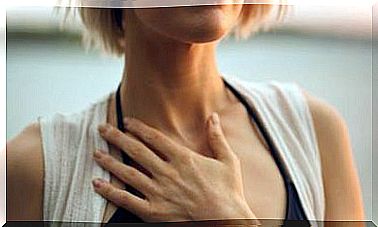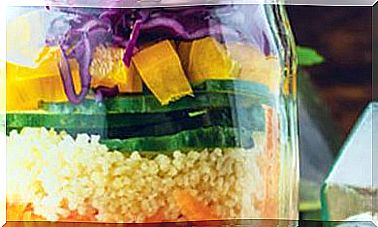Gradual De-escalation: Will It Affect Us Emotionally?
We have had to psychologically face an exceptional situation and accept a new reality of life within four walls. But the emotional swing is not over. Now it is time to adapt to a new situation: the gradual exit to the street.

We have faced different feelings during confinement but the emotional swing is not over. Now it is time to adapt to a new situation: the gradual going out onto the streets, reconnecting with a world that is not exactly the same as we left it.
During this confinement, the vast majority of citizens have been inoculated with another type of virus, even more invisible than Covid-19: fear. That feeling helped us to become aware of the seriousness of the situation, to take charge of the necessary measures to stop the pandemic and to feel protected within our homes.
Now it’s time to do the reverse journey. We have consciously or unconsciously placed the enemy outside and we have to tackle it in order to continue living. As if that were not enough, in the meantime significant losses have been discussed or experienced, either from people or from previous situations.
The outside world has been drawn as something dark and threatening, and which, affectively, we can feel as very dangerous. Faced with this sordid panorama, how will we react emotionally? Predictably, the emotional response is different depending on how old we are.
Children can develop phobias: what to do?
In the little ones, with whom, to stay at home, we have managed by telling them that, when entering the door, there was a strange being that could make them sick, it will not be uncommon for anxiety or restlessness to appear when having to go to the Street. That their nervousness increases, that they sleep worse, and that even phobias of some kind occur, or to go out, or to some character or object that concentrates all that threat.
Also in those who are already somewhat obsessive, certain traits of control and the need to do more rituals can be reinforced. We will have to go very little by little.
- We create new stories, supported by the truth, in which that monster is fading away due to the work of many professionals.
- If they are afraid, it is a good idea for them to take a doll or garment with them on their walks , the one they have as a fetish, which act as an alter ego, to feel more secure. By verifying that they return safely like him or her, they will confirm that going out will not hurt them.
Adolescents: will respond with anger or sadness
Young people, especially teenagers, who at the beginning of confinement, engrossed in their mobiles, seemed to be oblivious to what was happening around them, have become increasingly aware of everything.
Coexistence conflicts, family misfortunes, work problems, or simply having minimally followed the news about the development of the humanitarian and economic crisis produced by the coronavirus, have been able to highlight, excessively, the negative of the world in which we live. A black present and an even darker future. Against which there are basically two types of defensive response:
- If your response is outward aggression
They can present aggressive behaviors towards their siblings and / or parents, making them responsible for that reality so lack of freedom, limiting and unbreathable.
Despite their many frustrations and critical moments, it is necessary to be able to talk to them, untangle the dire vision of everything and accompany them in relocating the right measure of things and the resources that are available.
- If you react sadly
The other way to react youth is sadness, ie feelings inward. If, in addition to losing their freedom, the children have been impregnated with all the dire consequences of this crisis, they may feel guilty for different reasons, which would be summarized in feeling powerless in the face of the problems that this entire crisis has caused.
They can begin to reproach themselves for things: to think that they have not done anything positive in this time, that they have not contributed anything, that they are very little next to all those who have leaned their shoulders, that they are cowards because they are afraid …
That picture can lead to depression.
You also have to talk with them so that they can take out all that blackness from within. Relativize the role that each one has had and been assigned in this situation, which has been very different and with different degrees of commitment, and encourage them to cooperate in any task or action that they may feel useful.
It should be noted that this youthful response can occur without our realizing it. That, apparently, the boys and girls continue with their mobiles, chats, etc. But we must not forget that the adolescent galaxy is divided in two. Your friends, and the rest of the world. Both are present, which means that they are both registering at the same time and that the one with the most problematic reality may be the one that takes the least abroad. But, without a doubt, it is and they are making their mental speculations about it.
For this reason it is important to force, little by little, that they express what they have been interpreting from the crisis and the image of life that has been left to them.
Among adults: more helplessness, guilt and blame
Although we adults will face very different reactions in this passage to “normality”, the common factor will be decompression. The model would be, saving a lot of distances, the one that health workers have had to live, that is, they have had to face situations and in familiar environments, but under a degree of pressure and density never experienced before.
The environment has been the same as always, children, family, friends, work, etc., but concentrated in the same laboratory 24 hours a day and having to do tasks and make decisions, many of them unknown, permanently.
The tension has been in the background all the time and the containment of feelings has been the usual.
Any eventuality had to be managed strictly and rationally and the feelings that we might have or that the context generated for us leave for another moment.
These circumstances have been able to create the feeling of having been victims of an unjust context and that it surpassed us. Especially in the case of hospital admissions, isolations or deaths, we have had to make decisions that were not foreseen in our lives, this will weigh enormously in the immediate future.
The feeling of helplessness will gain ground, of not having been up to the task, of having precipitated or delayed us. In short, of having made a mistake. Both the feeling of having been an arbitrary object of fate, and the feeling of guilt for not having done what is necessary, can precipitate a depressive state.









